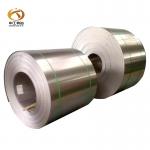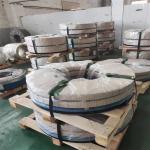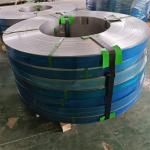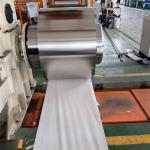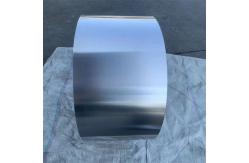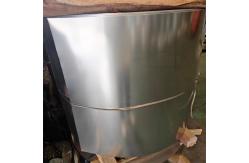20# Alloy Is A Low-Carbon Steel With Good Machinability And
Weldability For Structural Use.
20# Alloy is a medium-carbon steel primarily used for structural
and mechanical applications where a good balance of strength,
toughness, and wear resistance is required. This steel grade is
known for its reliability in various industrial contexts due to its
favorable combination of mechanical properties and ease of
processing.
Chemical Composition:
20# Alloy contains the following key elements:
- Carbon (C): 0.17-0.23% – The carbon content provides a good balance of
strength and hardness while maintaining reasonable ductility and
machinability.
- Manganese (Mn): 0.35-0.65% – Manganese improves tensile strength and hardness, and
also contributes to the alloy's toughness and wear resistance.
- Silicon (Si): ≤0.35% – Silicon aids in deoxidization during steelmaking, which
helps to produce a cleaner steel with a smoother surface finish.
- Phosphorus (P): ≤0.035% – Low phosphorus content helps avoid brittleness and
ensures that the steel remains tough and ductile.
- Sulfur (S): ≤0.035% – Sulfur is kept low to minimize inclusions and ensure
better machinability and overall strength.
Mechanical Properties:
20# Alloy offers a range of mechanical properties suitable for
various applications:
- Tensile Strength: 370-530 MPa – Provides strong resistance to pulling forces, making
it suitable for structural and mechanical uses.
- Yield Strength: ≥245 MPa – The yield strength ensures that the material can
withstand significant stress without permanent deformation.
- Elongation: ≥25% – Indicates good ductility, allowing the steel to be
stretched or formed without breaking, which is important for
fabrication and shaping.
- Density: Approximately 7.85 g/cm³ – Typical for medium-carbon steels,
balancing strength with weight.
- Hardness: HB 150-200 – Provides good wear resistance while retaining
sufficient flexibility and machinability.
Applications:
20# Alloy's balanced properties make it suitable for a range of
structural and mechanical applications:
- Construction: Used for manufacturing structural components such as beams,
columns, and frames, where moderate strength and good weldability
are required.
- Mechanical Parts: Ideal for producing various mechanical parts and components,
including shafts, gears, and axles, where durability and resistance
to wear are needed.
- Automotive Industry: Employed in the production of automotive components that require a
combination of strength and formability, such as engine parts and
transmission components.
- Metal Fabrication: Suitable for general metal fabrication, including the production
of plates, rods, and tubes that need to be machined or formed.
Summary:
20# Alloy is a versatile medium-carbon steel known for its
well-rounded mechanical properties, including a good balance of
strength, ductility, and hardness. Its chemical composition and
performance characteristics make it suitable for a variety of
structural and mechanical applications, from construction and
automotive parts to general metal fabrication. With its reliable
performance and ease of processing, 20# Alloy is a preferred
material in industries requiring durable and adaptable steel
solutions.
